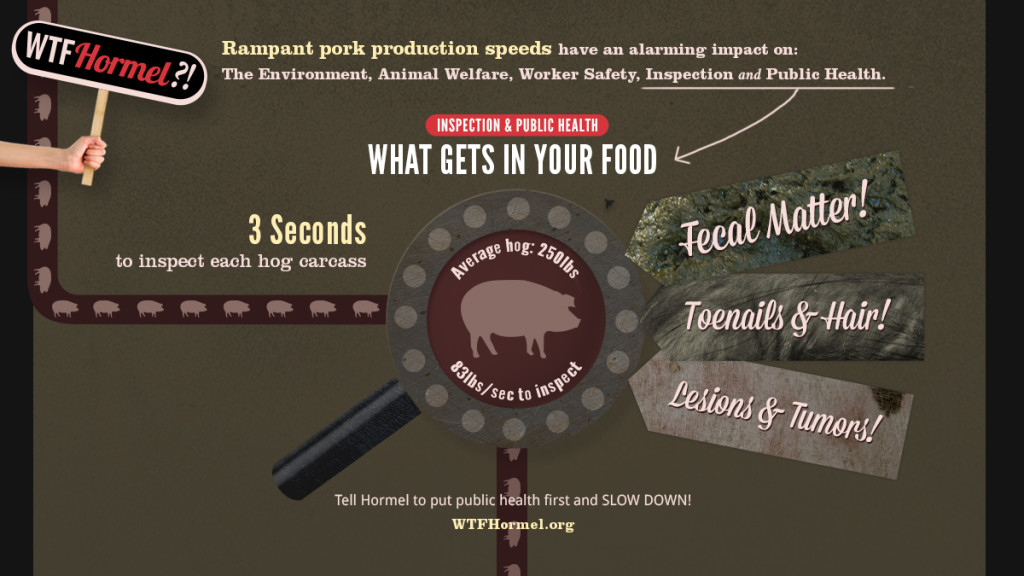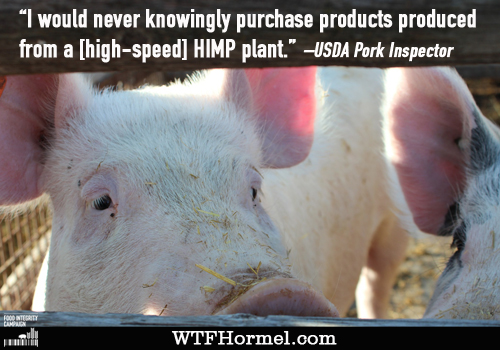Hormel can’t hide from the spotlight any longer. The top pork producer’s high-speed processing plant in Austin, Minnesota is facing some serious finger wagging by food integrity advocates across the spectrum. On the one hand, Compassion Over Killing has released undercover video footage that raises animal welfare concerns at the plant. On the other, former USDA inspectors have told the Food Integrity Campaign they wish to come forward with food safety concerns about the very same facility. A common denominator between these developments is the plant’s questionable speed of production.
Hormel clearly has a lot to answer for. That’s why we’ve teamed up with The Other 98% in launching WTFHormel.com, an interactive website that shows the perilous impacts that high-speed hog inspection has from farm to fork. That includes its harmful effects on the environment, public health, animal welfare, and worker safety.

Hormel’s Austin plant – known as QPP (Quality Pork Processors) – is one of five pork plants participating in USDA’s high-speed hog inspection pilot program. Under this controversial program, processing line speeds are moving at a rate 20 percent faster than at conventional plants. That means 1300 hogs are processed per hour, leaving inspectors with only three seconds to view each 250-pound hog carcass for signs of disease and contamination.
As whistleblowers have told the Food Integrity Campaign, three seconds is way too fast to do their job properly. Two recently retired USDA inspectors who previously worked at the QPP plant have decided to come forward publicly with their concerns in light of the heightened attention on Hormel. They warn against expanding the pilot program nationwide, explaining that the faster line speeds make it impossible to detect contamination (such as abscesses, lesions, fecal matter) and other defects that may render an animal unsafe or unwholesome.

Please visit WTFHormel.com to learn about the various impacts of Hormel’s practices throughout the food chain and take action. This is an especially opportune time to call on Hormel to make change, since the company just acquired new leadership. Tell Hormel President James Snee to address these concerns and slow things down.
Sarah Damian is Communications Manager for the Food Integrity Campaign, a program of the Government Accountability Project – the nation’s leading whistleblower protection and advocacy organization.